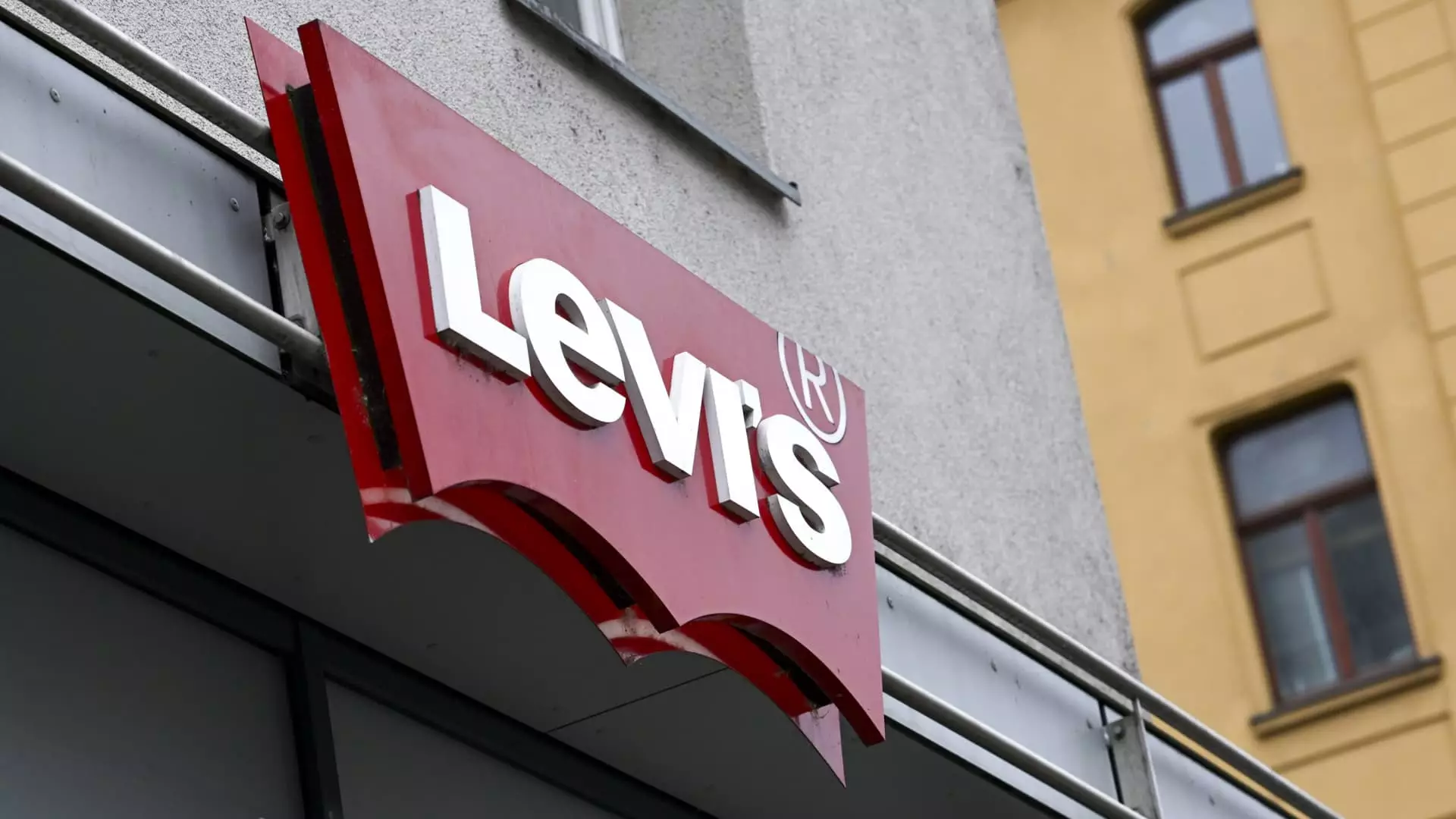In a pivotal moment for Levi Strauss, the venerable denim icon has decided to part ways with its once-celebrated Dockers brand, selling it to Authentic Brands Group for $311 million. This bold departure, announced on Tuesday, has generated a cocktail of reactions—mixed sentiments swirling between relief and regret. For Levi’s CEO Michelle Gass, this deal appears to align with a vision steeped in operational focus and direct consumer engagement. Yet, one must ponder: is this a strategic maneuver or an acquiescence to the realities of a fast-changing fashion landscape?
Dockers, birthed in 1986 as a stylish alternative to denim, thrived throughout the 1990s and early 2000s. However, the tides of consumer preference have shifted dramatically, with khakis losing their luster amidst the denim revival. Thus, the sale is more than mere business; it represents a fundamental shift in how brands are perceived within the marketplace. The question arises whether Levi’s has acknowledged its own outdated paradigms, letting go of a brand that was ostensibly a buffer against denim’s cyclical nature.
Authentic Brands Group: Masters of Reinvention
Authentic Brands Group has carved out a reputation for rejuvenating floundering brands, from Forever 21 to Reebok. Their model hinges on leveraging intellectual property while enhancing operational efficiency through partnerships. With Dockers under their belt, Authentic is weaving its expansive global network into the fabric of the khaki brand, seeking opportunities in diverse markets, including Latin America and Asia.
While Levi’s may stand to gain if Dockers thrives under Authentic’s management—potentially up to $391 million in future payouts—the true impact lies in whether the brand can recapture its former glory. Authentic claims a comprehensive strategic vision to “unlock new opportunities,” but assurances from brand managers are often couched in optimistic language. Can a brand that sat at the pinnacle of casualwear truly adapt in today’s fashion climate, where tasteful comfort reigns supreme and diversity in style is the new norm?
Levi’s Focus on Direct-to-Consumer: The Bigger Picture
Levi Strauss’ focus on consolidating its operations under the banner of direct-to-consumer is emblematic of a larger trend within the retail sector. Gass herself stated that the deal allows for an increased emphasis on their core offerings, notably denim and the athleisure line Beyond Yoga. Fewer brands may also lead to a more streamlined message, helping the company forge a clearer identity in a crowded fashion arena.
However, this streamlining comes at a cost—the sacrifice of a heritage brand that many consumers fondly remember. In an age where nostalgia plays a powerful role in consumer decision-making, the question lingers: will the public embrace Levi’s new strategy, or will they yearn for the familiar khaki that once accompanied their lives?
For some demographic segments, khakis symbolize a bygone era of casual sophistication. Yet, as consumer preferences become increasingly erratic—chasing trends rather than sticking to staples—the poignant nostalgia may not be enough to sustain the brand’s relevance.
The Future of Casual Wear
With the landscape of casual wear shifting so dramatically, both Levi’s pivot and Authentic’s acquisition are emblematic of broader trends in the fashion industry. Companies are scrambling to keep pace with consumer habits, which now demand sustainability and individuality over traditional offerings. What remains unclear is the extent to which either party is prepared to innovate.
Matt Maddox, president at Authentic, expresses an unwavering confidence in Dockers’ potential to reimagine itself for a new generation. The veracity of this claim will rest on Authentic’s ability to creatively forge access points for consumer engagement and style adaptation. If successful, they could very well set the stage for a renaissance of a brand that many thought had lost its way.
As we witness this unfolding narrative, it will be fascinating to monitor not just the financial outcomes of this partnership but also the cultural ramifications. Will Dockers find relevance again in a world increasingly defined by diversity and personal expression? Only time will tell whether the world is ready to welcome khakis back into everyday fashion, and what role Levi Strauss will play on the sidelines of this journey.


Leave a Reply